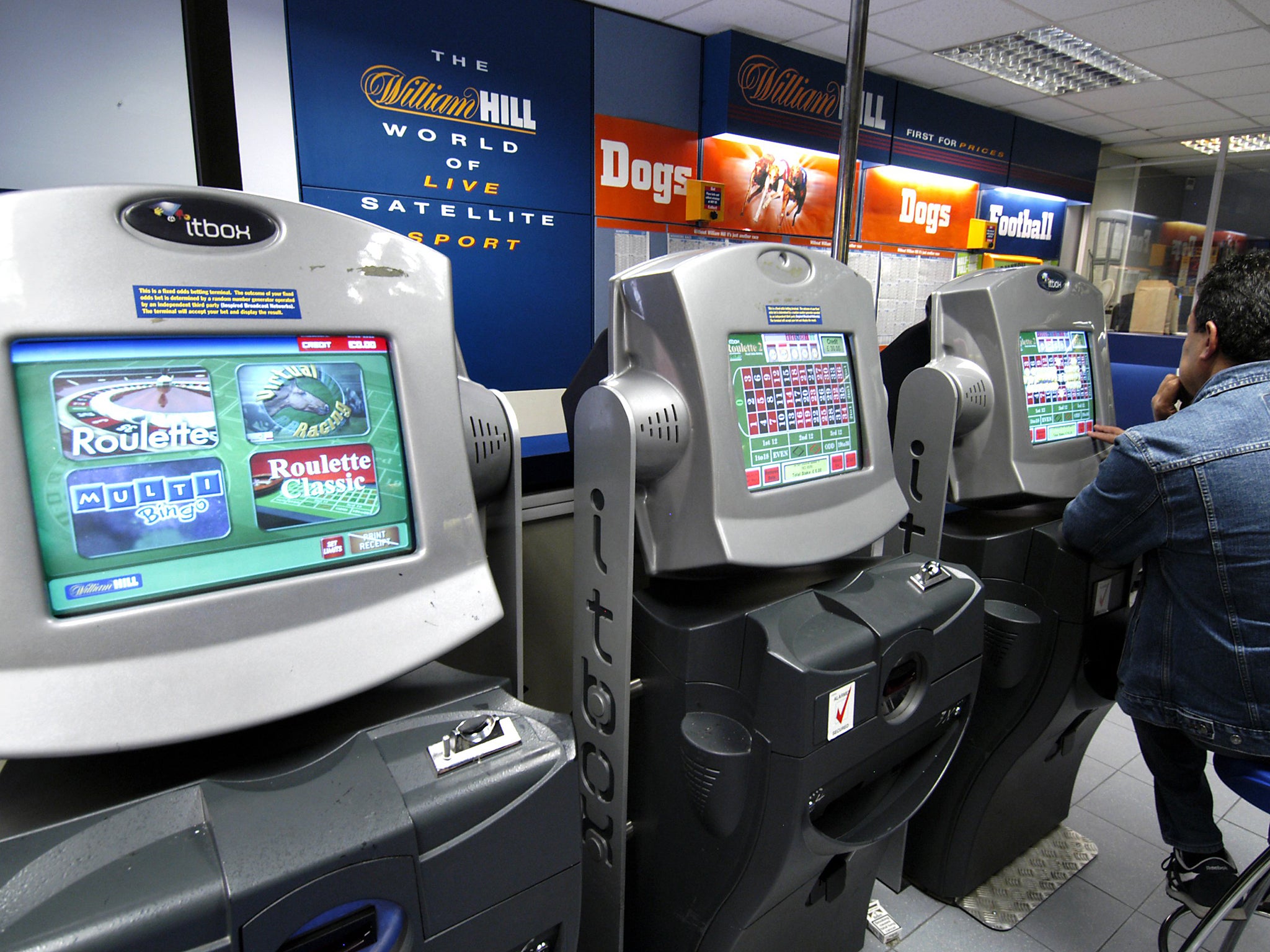Thousands of gamblers still face high losses if fixed-odds betting terminals stakes fixed at £30, finds research
Potentially addictive betting machine allow users to wager up to £100 every 20 seconds

Your support helps us to tell the story
From reproductive rights to climate change to Big Tech, The Independent is on the ground when the story is developing. Whether it's investigating the financials of Elon Musk's pro-Trump PAC or producing our latest documentary, 'The A Word', which shines a light on the American women fighting for reproductive rights, we know how important it is to parse out the facts from the messaging.
At such a critical moment in US history, we need reporters on the ground. Your donation allows us to keep sending journalists to speak to both sides of the story.
The Independent is trusted by Americans across the entire political spectrum. And unlike many other quality news outlets, we choose not to lock Americans out of our reporting and analysis with paywalls. We believe quality journalism should be available to everyone, paid for by those who can afford it.
Your support makes all the difference.Vulnerable problem gamblers would still face enormous losses if the maximum stake for fixed-odds betting terminals (FOBTs) is set at £30, research shows.
Tens of thousands of players will lose more than £500 in a session if the Government brings in a cap on potentially addictive betting machines, according to analysis by bacta, the trade body for the amusements sector.
Roulette-style gaming machines allow people to wager up to £100 every 20 seconds, prompting the Gambling Commission to recommend the maximum stake to be curbed at £30.
Bacta is calling for all bets to be capped at £2 to limit the damage caused by FOBTs, which are believed to cost the public purse around £210m per year in healthcare and public services.
However bookmakers argued that the move would effectively result in a total ban on these machines as they will no longer be economically viable, which could lead to 21,000 job losses in the sector.
Analysis of official session loss data from 2015/16 found that there were 136,561 sessions where players lost over £500 when the average stakes were below £30, amounting to around 17 per cent of all high-loss sessions - which are defined as £500 or more.
When average stakes were between £10 and £20, there were 40,926 high-loss sessions, while there were 5,613 high-loss sessions when bets were between £5 and £10.
Chief executive John White said: “We were deeply concerned by the Gambling Commission’s advice that a stake level of up to £30 should be considered on FOBTs excluding slots.
“This analysis reinforces those worries, demonstrating the clear link between high-loss sessions on FOBTs and stake levels of between £5 and £30.
“It could not be clearer that only a £2 stake maximum can help protect vulnerable people from major losses on these machines, which are the source of so much needless and avoidable harm.
"A £2 stake is the only safe and sensible option to limit the damage caused by FOBTs, and we urge Government to acknowledge this and act."
Shadow culture secretary Tom Watson said the UK was in the grip of a "hidden epidemic of problem gambling" and urged ministers to clamp down on FOBTs.
He said: “The Government must do the right thing and reduce the maximum stake on all FOBTs to £2.
"Anything else will be a capitulation to the lobbying power of the gambling industry and a betrayal of the families and communities that have suffered so much because of these horribly addictive machines."
The Association of British Bookmakers (ABB), which supports a statutory levy on the industry to fund addiction treatments, said the analysis was misleading as it failed to take into account the large number of players who won more than £500 on stakes below £30.
A spokesman added: "It is clear that Bacta's primary focus is on securing a commercial advantage for amusement arcades over betting shops and that they will consistently and wilfully distort data to this end."
The Government has committed to reduce the FOBT stake limit from its current level of £100, and is currently considering the advice from the Gambling Commission.
“We’ve put consumers at the heart of our advice – advice which is based on the best available evidence and is focussed on reducing the risk of gambling-related harm,” said Gambling Commission chief executive Neil McArthur.
“In our judgement, a stake cut for Fixed Odds Betting Terminals alone doesn't go far enough to protect vulnerable people. That is why we have recommended a stake cut plus a comprehensive package of other measures to protect consumers."
Join our commenting forum
Join thought-provoking conversations, follow other Independent readers and see their replies
Comments